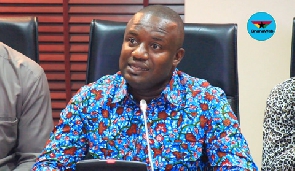THE SWIFT AND non-contentious conclusion of our Election 2000 while America, the acclaimed Father of Democracy, wrangled acrimoniously over theirs held a few weeks earlier, won the country much mileage as a place where democratic ethos was fast developing taproots.
It is important that the conduct of all concerned with Election 2004 maintain for us that international prestige of maturing democrats, if we cannot improve upon it. It is in this light that we welcome wholeheartedly the move by the Institute of Economic Affairs (IEA) and the Institute of Multi-party Democracy (IMD) of The Netherlands to give us an ?enforceable? code of conduct for political parties and politicians.
According to Mr Kwesi Jonah, IEA acting Head of Governance Centre, the two institutes and the four political parties with representation in Parliament have evolved a 13-point Code of Conduct for Election 2004 and subsequent ones.
To ensure that this ?new? code enjoys a better fate than its Election 2000 predecessor which was observed more in the breach than anything else, Mr Jonah said a body of civil society actors, including the Trades Union Congress (TUC), the Ghana Bar Association (GBA), the Christian Council of Ghana (CCG), the Catholic Secretariat, Muslim Groups, Women?s Groups and NGOs, would be set up as a watchdog to superintendent the code.
According to Mr Jonah, even if the body operated without sanctions, its mere capacity to call attention to breaches of the code and demand appropriate apology would ?go a long way towards bringing sanity to the political scene?.
The code, among others, requires:
? Political parties and election officials to adhere to existing electoral laws and rules on criminal code and civil governance;
? Political parties and candidates participating in polls shall extend full co-operation to election officials performing their legal duties on polling day in order to ensure a peaceful, orderly polling;
? Political parties and candidates to extend the necessary help and co-operation to law-enforcing authorities to ensure the safety and security of election officials and party agents on polling day; and
? Political parties and other agents to be vocal against violence no matter who originates it while no political party shall give indulgence to any violent activity of any kind in order to demonstrate party strength and supremacy.
He said the objective of the code is to ensure that electioneering was done with decorum and without inflammatory language to ensure that nothing was done to create tension and disrupt the congenial atmosphere of the elections.
The Gye Nyame Concord associates itself with these aims and objectives of the code of conduct for politicians and we commend the IEA and its Dutch collaborators for this laudable project. We wonder, however, why the parties without representation in parliament were left out at the initial stages only for their input to be sought later. Was it because of lack of money or what? Such unnecessary discrimination are what contribute to election violence that the code seems to guard against. If a registered political party is to be sidelined in the evolution of guidelines for political conduct merely because it is not represented in Parliament then why should winning a parliamentary seat not become a do-and-die affair?
To give statements from the oversight body greater moral suasion in the absence of sanctions, we will urge Mr Jonah to lobby Editors of newspapers and get their agreement to the effect that any such statement condemning breaches of the code be given front-page treatment at all times. From stories carried in their publications, these editors appear to be against election violence and would freely contribute their quota to minimise, if not curb it altogether, if properly approached.
The major problem we see could be the readiness of the members of the oversight body itself to be even handed in its condemnations. Our experience is that there are many closet politicians on various apparently independent bodies who would readily condemn the behaviour of members of the party they do not support but would keep mute when the same behaviour is exhibited by their preferred parties.
We will therefore urge the IEA and the civil society bodies that would nominate members to the oversight body to be very careful of whom they empanel to police the code of conduct. There are many wolves in sheep clothing around. They must make sure that one such person does not get into the chairmanship of the body. Otherwise, it would be doomed at birth.
Editorial News of Saturday, 8 May 2004
Source: ye Nyame Concord
















